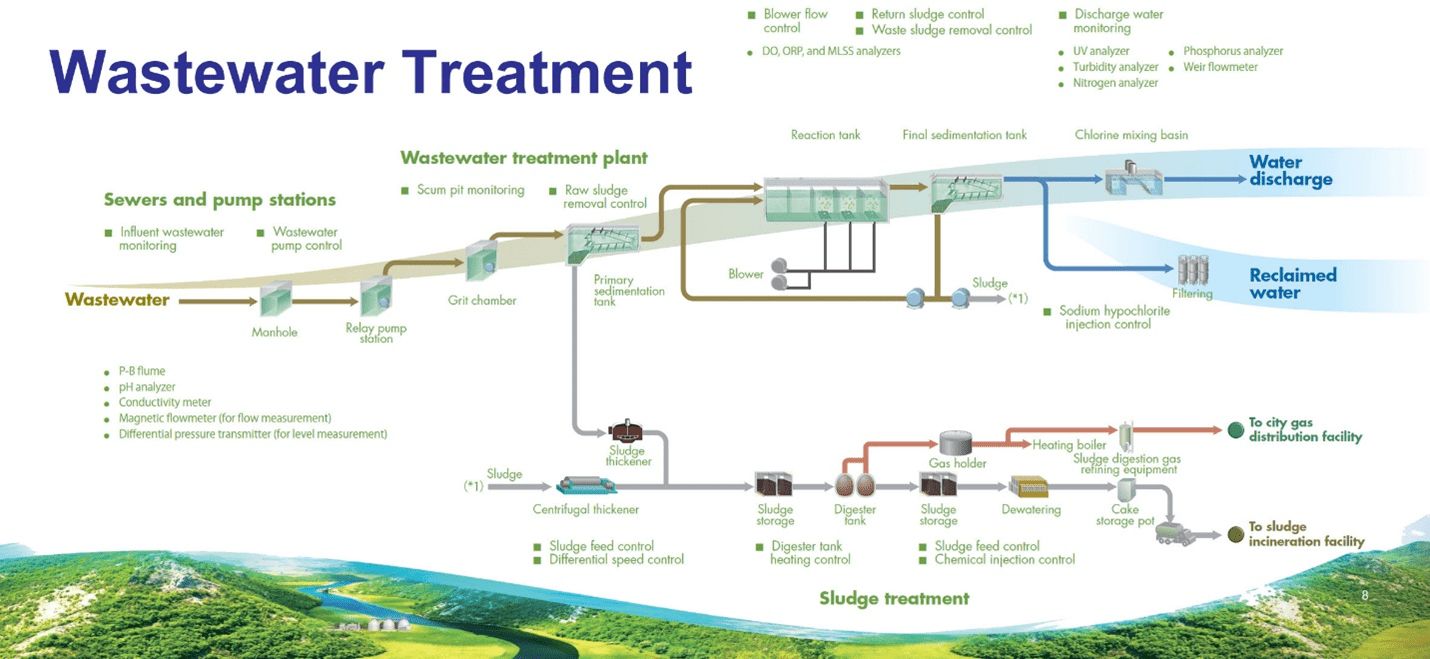Municipal sewege handling and water treatment
Smart water automation in municipal sewage handling and water treatment involves the integration of advanced technologies to improve the efficiency, reliability, and sustainability of water management processes. Here are some key aspects and features of smart water automation currently being offered by Hydrologic MGP Systems:
1. Real-time Monitoring and Sensors
Deploy sensors throughout the sewage and water treatment infrastructure to monitor key parameters such as water quality, flow rates, and chemical concentrations in real-time.
Implement automated data collection and transmission for continuous monitoring.
2. Automated Wastewater Treatment Processes
Utilize automation to control and optimize various stages of wastewater treatment, including primary, secondary, and tertiary treatment processes.
Implement advanced control algorithms to adjust treatment parameters based on real-time data.
3. SCADA (Supervisory Control and Data Acquisition) Systems
Implement SCADA systems to provide centralized monitoring and control of sewage and water treatment plants.
Enable remote access for operators to monitor and control processes from a central location.
4. Predictive Analytics for Maintenance
Use predictive analytics to anticipate equipment failures and schedule maintenance proactively.
Implement condition monitoring systems for critical components to reduce downtime.
5. Energy Efficiency Optimization
Optimize the energy consumption of pumps, blowers, and other equipment used in sewage and water treatment.
Implement energy-efficient technologies to reduce operational costs.
6. Smart Metering and Billing
Install smart meters to accurately measure and monitor water usage in the municipality.
Implement automated billing systems for better transparency and control over water expenses.
7. Automatic Chemical Dosing
Implement automated chemical dosing systems based on real-time water quality data.
Optimize the use of chemicals in the treatment process for cost efficiency and environmental sustainability.
8. Smart Sludge Management
Implement automation in sludge handling and disposal processes.
Monitor sludge levels, optimize dewatering processes, and automate sludge removal.
9. Leak Detection and Infrastructure Monitoring
Use sensors for leak detection in sewage pipelines to minimize water loss.
Implement automated systems to monitor the condition of infrastructure and detect potential issues.
10. Remote Alarm and Notification Systems
Implement automated alarm systems to notify operators of critical events or deviations from normal operating conditions.
Enable automated notifications through email or mobile devices for quick response to emergencies.
11. Integration with GIS (Geographic Information System)
Integrate smart water systems with GIS for spatial analysis and mapping of sewage and water treatment infrastructure.
Enhance decision-making with location-based information.
12. Data Analytics for Process Optimization
Employ data analytics to analyze historical data and identify trends for process optimization.
Implement machine learning algorithms to predict and prevent water quality issues.
13. Compliance Monitoring and Reporting
Ensure compliance with environmental regulations and water quality standards.
Generate automated reports for regulatory agencies to demonstrate adherence to standards.
14. Public Engagement and Awareness
Implement systems to provide the public with real-time information on water quality and treatment processes.
Increase awareness of water conservation and environmental stewardship.
Smart water automation in municipal sewage handling and water treatment enhances overall efficiency, reduces environmental impact, and ensures the delivery of safe and treated water to communities. It also supports sustainable water management practices and helps municipalities meet regulatory requirements.

